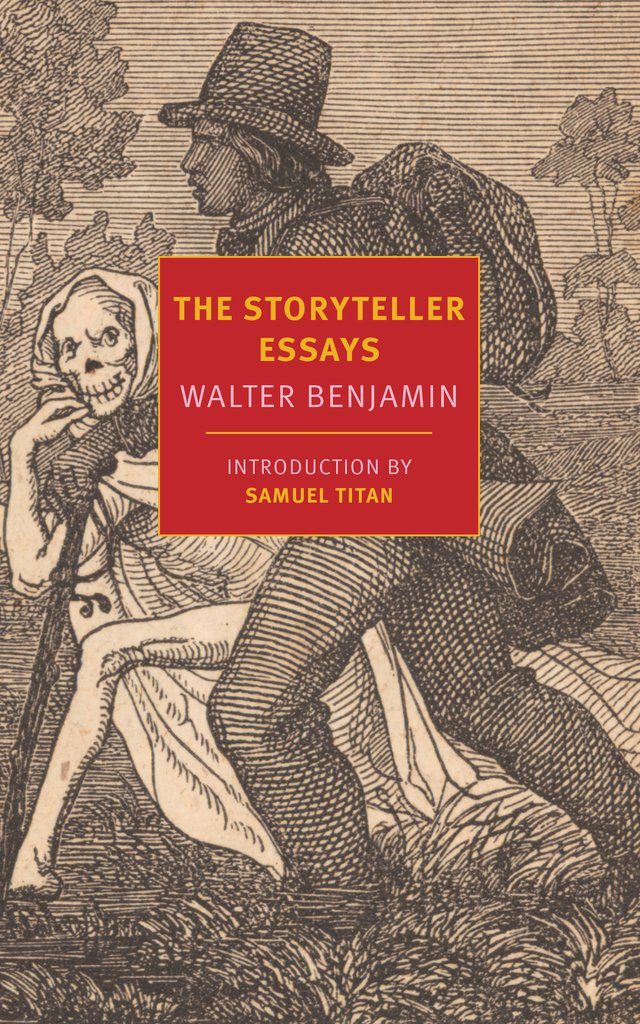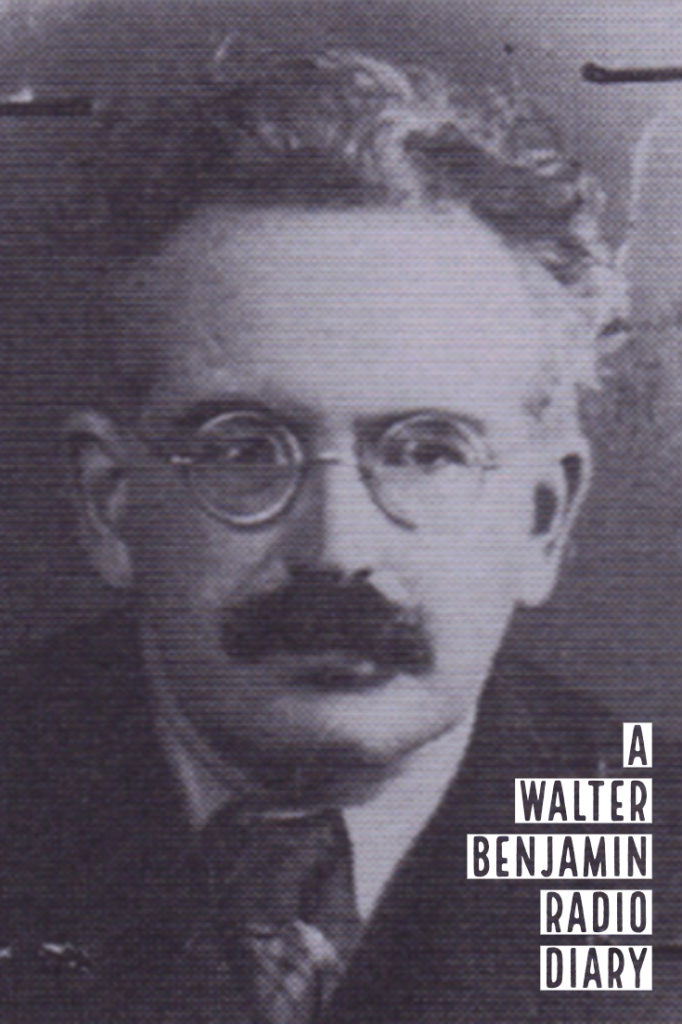I have composed just two entries for my Walter Benjamin radio diary, and already I am getting lots of mail.
First came a friendly missive from Nick During, publicist at the New York Review of Books classics department. “We actually have a Walter Benjamin book coming up,” Nick wrote, “that is a collection of his writings that show how he got to the ideas found in his famous essay ‘The Storyteller’ and includes one radio piece, ‘The Lisbon Earthquake’. Would you like to see our book?”
Well, yes, I replied. So the publisher sent it to me.

The little tome in question is called The Storyteller Essays, edited and introduced by Samuel Titan and translated from German by Tess Lewis. It assembles various Benjamin texts that provide context for his famous thought piece “The Storyteller.” I do not want to say much about this essay right now, but “The Storyteller” provocatively contends that a story is best told without an explanation for its events.
Benjamin wrote:
“Every morning, news reaches us from around the globe. And yet we lack remarkable stories. This is due to the fact that no incidents any longer reach us not already permeated with explanations. In other words: almost nothing occurs to the story’s benefit anymore; instead, it all serves information. In fact, at least half of the art of storytelling consists in keeping one’s tale free of explanations.”
Titan, The Storyteller, p. 54.
What purpose does this omission of explanations serve? It allows story tellers and listeners to own the tale, to see it as organic to their very specific and individual lives. “The storyteller,” Benjamin concluded, “is the figure in which the righteous man encounters himself.” When I discuss his Lisbon earthquake radio talk in an upcoming post, I will try to show how these arguments come to life.

Then I received some correspondence from radio producer Toby Kaufmann-Buhler.
“I just found your blog posts on the Radio Survivor site about Walter Benjamin and his radio work,” Kaufmann-Buhler wrote.

“Over the past 8 months or so I’ve produced one of Benjamin’s radio plays, ‘Lichtenberg: A Cross-Section’. This is from the translation in the Radio Benjamin book; this play was never originally broadcast as he finished writing the commission just as broadcasting was taken over by the Nazi regime.
We produced this originally for an exhibition this past May at a sound art gallery in Indianapolis, Listen Hear, which also houses the LPFM station WQRT 99.1. The play aired on WQRT several times; as far as I know this was the first radio broadcast of the play in English, and possibly in any language (could be wrong, but this is based on my research). The play has also been broadcast more recently in New York’s Hudson Valley on Wave Farm’s experimental station.”
Here is my favorite moment from the play, which focuses on a committee of Moon beings’ efforts to engage in “Earth research”:
“The samples taken over the last millennia have not yielded a single case in which a human has amounted to anything. Taking this established scientific fact as a basis for our investigations, our meetings from now on will deal solely with proving that this is a result of the unhappy human condition.”
To help with this task, the committee gloms onto to the research of the German writer/humorist/scientist Georg Christoph Lichtenberg, with whom Benjamin was apparently quite taken. But that is as far as I will go with this script. You will have to listen to the radio play to learn more.
Finally, Patricia Flanagan brought this BBC Wireless Nights sound essay to my attention. Pulp stalwart Jarvis Cocker takes us on a sultry tour of contemporary Berlin, laced with tales of the Cold War era. Not exactly a Walter Benjamin piece, but quite beautiful. I recommend a listen.
That’s my Walter Benjamin mail so far. Drop me a line at hybridhighbrow<AT>radiosurvivor.com and your Benjamin related work may wind up in my next mailbag dispatch. Thanks in advance!


